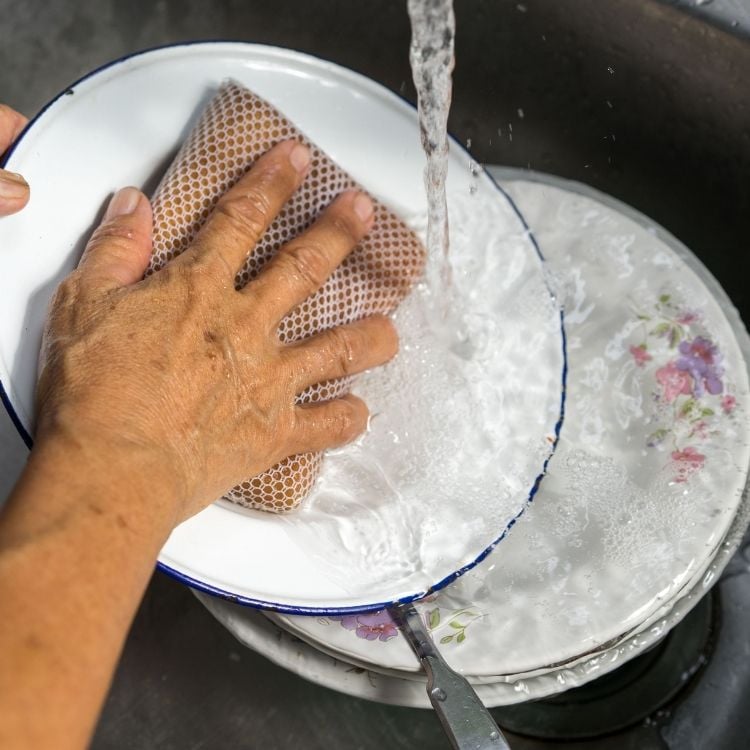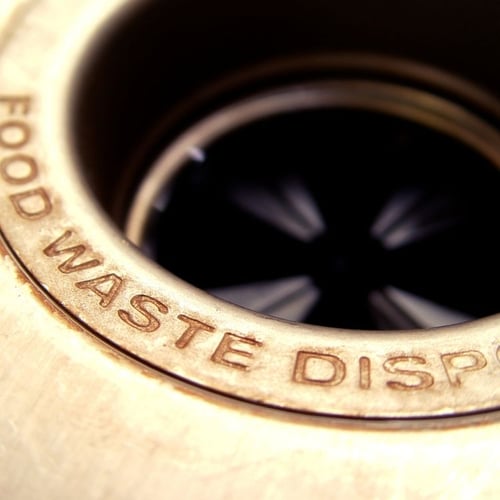Once you’ve lived in a home with a dishwasher, it can be hard to go back. This beloved appliance sits humbly below the counter, waiting for its time to shine. As long as it’s in good working shape, you get to use it to save time and effort that you’d otherwise spend washing your dishes by hand.
The problem is that many homeowners start to take their dishwasher for granted. They enjoy the benefits of this amazing kitchen appliance without questioning its condition. In reality, there are a few things that homeowners and renters need to do to take care of their dishwasher. Otherwise, they might just have a dishwasher malfunction that ends in a wet and nasty mess.
If you want to avoid reaching this point, then you need to learn some tips on caring for your dishwasher. Good dishwasher maintenance starts with knowing what you can and cannot put into the dishwasher. Although you don’t need to wash your dishes ahead of loading the dishwasher, you must remember that your dishwasher is not a garbage disposal. There are a few guidelines to what this appliance can handle, and what it needs from you to perform its best.
Don’t waste water on a pre-rinse
To rinse or not to rinse? If that has been a debate in your household, you can officially bring it to an end. According to research performed by Bosch dishwashers, there’s no need to rinse your dirty dishes ahead of putting them in your dishwasher. This myth probably started early on in the era of dishwashers, when the machines weren’t as efficient as they are today.
A modern dishwasher is made to take on truly dirty dishes. The dish detergents that are made for today’s dishwashers are designed to grab onto leftover bits of food. That means that a plate still dirty with sauce or grease is fine to go straight into the washer. The appliance and the detergent can handle it.
If you end up rinsing every dish off before you put it in the dishwasher, you will end up wasting time, energy, and money. Washing or rinsing by hand can use over two dozen gallons of water, whereas an efficient dishwasher can get the job done with just three to six gallons.
However, as always there are a few exceptions to the rule. For the best, cleanest results, dishes should go in for a wash while the mess is fresh. A bowl that’s been sitting on the counter since it served you oatmeal in the morning will probably need a soak, as would a lasagna dish from dinner the other night.
Keep the food scraps for the garbage disposal
Although dish detergent is made for tackling bits of food and sauces, it doesn’t mean you can just shove your dinner plate straight into the dishwasher, uneaten brussel sprouts and all. If you end up with too many food scraps in your dishwasher and don’t address it, you’re going to run into some problems. In order to explain the fine line between acceptable food residue and too-large food scraps, we need to investigate what happens to the food in the dishwasher.
Many of the food scraps that end up in the dishwasher are actually broken down enough by the washing process that they can be rinsed down the drain. Just as a garbage disposal breaks apart food waste until it’s small enough to be carried through pipes, the dishwasher pulverises much of its food debris into tiny pieces.
Older models of dishwashers actually included grinders of their own. They acted as built-in garbage disposals, and were there to ensure that even larger pieces of food got chopped up smaller enough to avoid clogging the pipes. However, these grinders were unpleasantly loud. Newer dishwashers leave them out of the design and instead use a filter to catch big pieces of waste.
Even though there are tools in place to keep food from clogging the dishwasher, this does not mean that you should treat this appliance like it’s a garbage disposal. Its purpose is not to get rid of your food waste. Its purpose is to clean your dishes. If you want your dishwasher to carry out its purpose effectively, you need to save your food waste for the garbage disposal.
This is not to say that a stray piece of crust leftover from lunch’s peanut butter and jelly could be the end of your dishwasher. If scraps are too big to be pulverized, they end up in the filter. The key is to clean out this filter every three to six months to prevent clogging and keep your dishwasher working well. If you treat your dishwasher like a garbage disposal, you’ll need to empty out the filter much more frequently.
How to tell if your dishwasher is clogged
The best practice is to be proactive about your dishwasher maintenance. Put a reminder on your phone or in your calendar to help you remember to empty the filter every so often.
If you happen to forget and your dishwasher does get clogged, there are some frustrating side effects that will remind you it’s time to clean the filter. For one thing, you might start to notice that your dishes are coming out dirty. And, some clogged dishwashers will make a gurgling sound, which is the sound of the water trying to get through the clog.
A clogged dishwasher could also cause water to back up in the sink while it’s running, because the dishwasher is connected to the kitchen’s drainage system. However, before you call a plumber on this one, try running the garbage disposal to see if that helps. The garbage disposal uses the same drainage system, so if there’s food stuck there that may be the culprit.
You can also tell that a dishwasher is clogged if there is standing water in the appliance after the cycle finishes. Empty the filter basket and see if this helps. If you’re still noticing a clog, it’s time to call a plumber!



